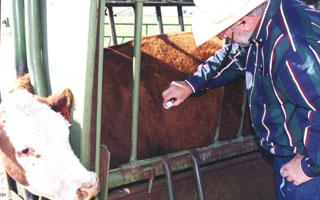
| A cow’s lungs lie below the rib cage and do not extend beyond the last rib. To listen to the lungs, choose a location that is between the ribs. It is best to listen in many different rib spaces. Also, listen to the trachea in the neck region. |

|
Lungs
|
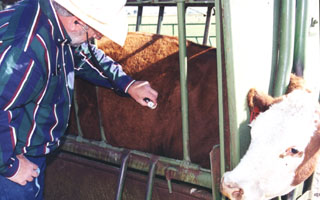
|
Lungs
|
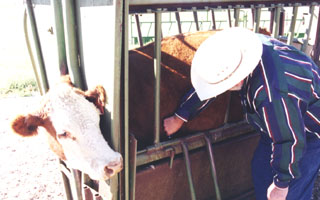
|
Heart
|
|
If the video
does not play, you must install an MPEG video |
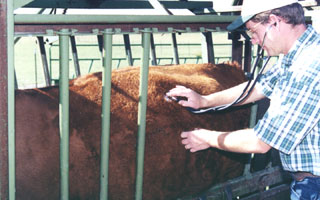
|
Rumen
|
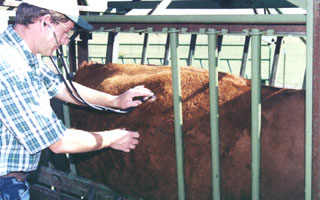
|
Intestines
|